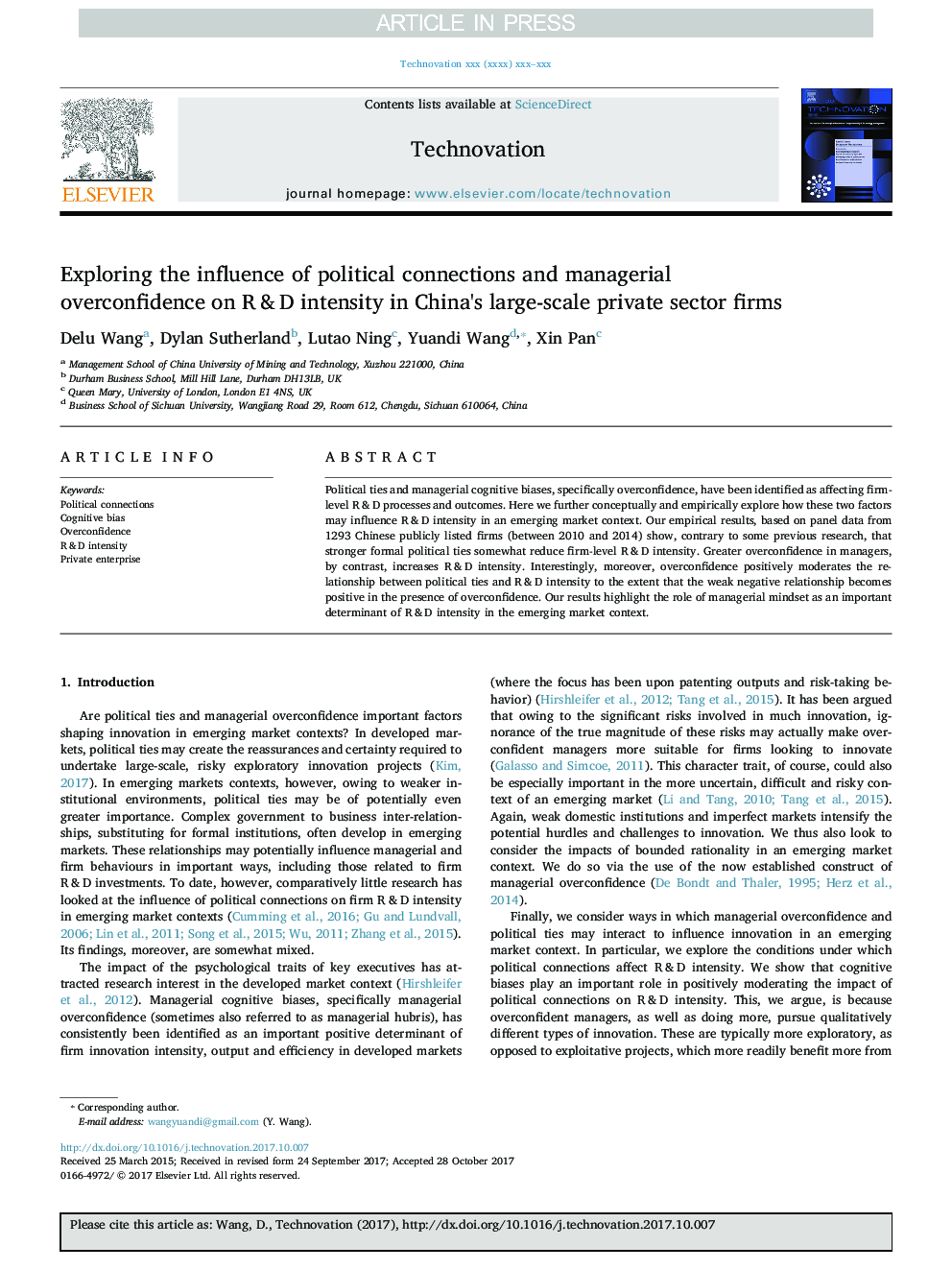| Article ID | Journal | Published Year | Pages | File Type |
|---|---|---|---|---|
| 7427131 | Technovation | 2018 | 14 Pages |
Abstract
Political ties and managerial cognitive biases, specifically overconfidence, have been identified as affecting firm-level R&D processes and outcomes. Here we further conceptually and empirically explore how these two factors may influence R&D intensity in an emerging market context. Our empirical results, based on panel data from 1293 Chinese publicly listed firms (between 2010 and 2014) show, contrary to some previous research, that stronger formal political ties somewhat reduce firm-level R&D intensity. Greater overconfidence in managers, by contrast, increases R&D intensity. Interestingly, moreover, overconfidence positively moderates the relationship between political ties and R&D intensity to the extent that the weak negative relationship becomes positive in the presence of overconfidence. Our results highlight the role of managerial mindset as an important determinant of R&D intensity in the emerging market context.
Related Topics
Social Sciences and Humanities
Business, Management and Accounting
Business and International Management
Authors
Delu Wang, Dylan Sutherland, Lutao Ning, Yuandi Wang, Xin Pan,
